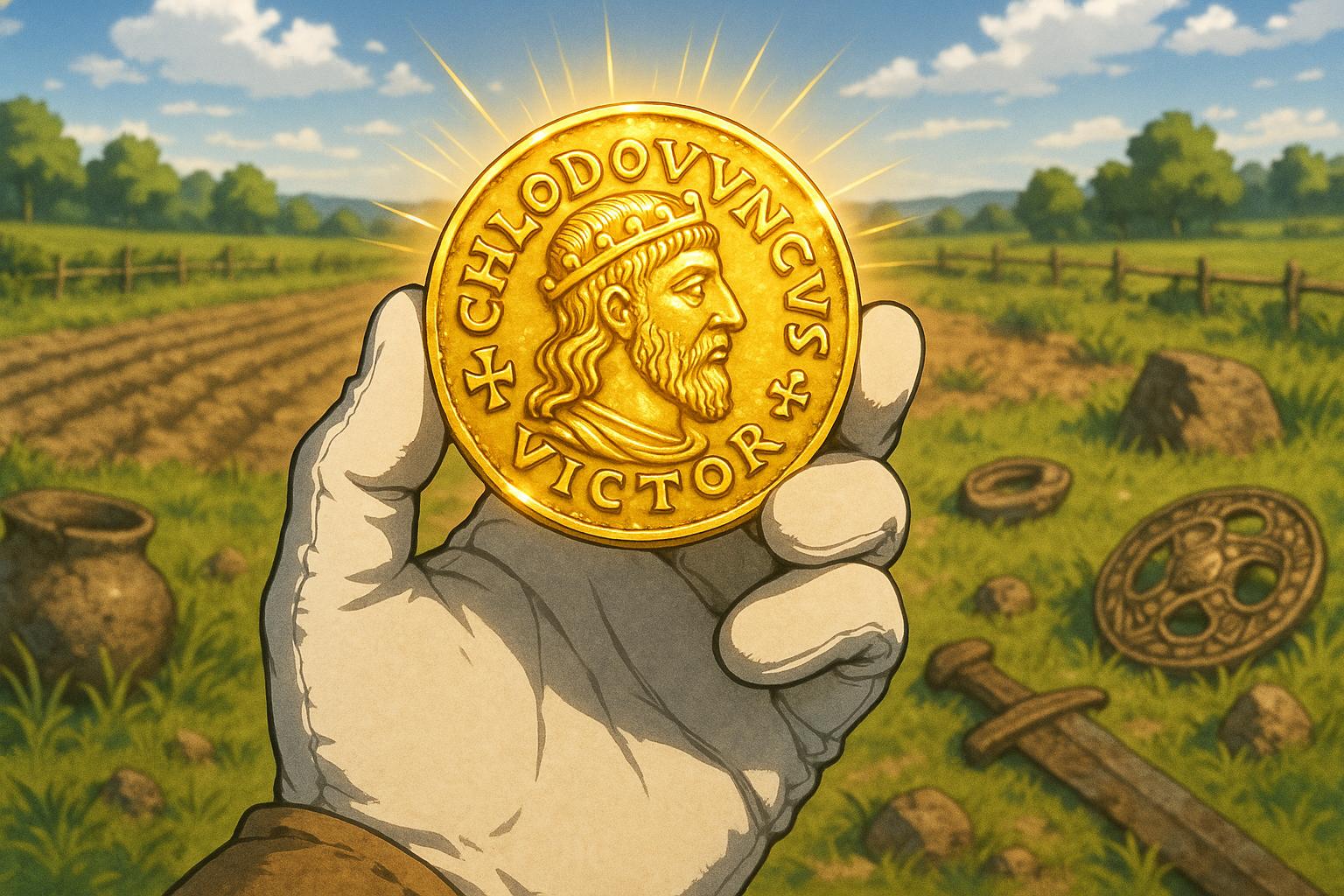David Cockle, a former police officer from Norfolk, finds himself at the centre of a scandal that starkly highlights the ethical obligations surrounding treasure hunting and the consequences of dishonesty. Aged 50, Cockle was sentenced to 16 months in prison after he admitted to stealing ten rare Merovingian Tremissis coins, which he discovered using a metal detector on farmland yet failed to report as required by law.
The tale took a regrettable turn for Cockle, who pocketed £15,000 from the illicit sale of these 7th-century treasures, only to learn that adhering to proper reporting protocols could have netted him a staggering £100,000 from the rightful sale of the coins. In a remarkable contrast, the landowner and an honest detectorist who followed the regulations shared a payout of £367,200 after their finds were officially declared treasure by the authorities. This hoard, consisting of 131 coins, has been deemed the largest Anglo-Saxon coin discovery in England, and its historical significance can't be overstated.
Judge Rupert Overbury, in a poignant commentary, described Cockle's actions as driven by 'pure greed', a sentiment resonated by many in the archaeological community who view his dishonesty as a profound betrayal of trust. The coins were uncovered in a field in West Norfolk, an area now known for its rich archaeological potential, yet Cockle's actions undermine the broader community of metal detectorists who engage in the hobby with respect and integrity.
Under legal obligations, treasure finds in the UK must be reported to the coroner, ensuring that any artefacts are properly documented and preserved for future generations. Cockle's failure to declare his find, stemming from an initial agreement with the landowner to split any proceeds from reported discoveries, subjected him to intense scrutiny. After bragging to fellow officers about his unreported find, his dishonesty was revealed, leading to his downfall.
The Ipswich Crown Court made it clear that his actions not only harmed the archaeological integrity of the site but also disrupted the longstanding trust between detectorists and landowners. Furthermore, the judge's ruling included a five-year criminal behaviour order that prohibits Cockle from engaging in metal detecting, thereby ensuring that he cannot repeat his transgressions.
The coins Cockle sold were exceptionally unique, each valued around £4,000. An inquest has confirmed that they were part of a broader hoard, believed to be buried around 610 AD, which has now become an invaluable asset for Norwich Castle Museum. This museum is now able to delve deeper into the past, providing vital insights into early medieval life within the region.
Dr Tim Pestell, the senior curator at the museum, noted that the collection includes coins from various European mints, showcasing the extensive trade networks that existed during the Merovingian period. The significant historical contribution of these coins is crucial for understanding societal structures and economic practices of the time.
Cockle's conviction has not only raised questions about individual integrity but has also sparked discussions within the metal-detecting community about the adherence to ethical standards. As the past resurfaces through these ancient treasures, it serves as a haunting reminder of the fine line between exploration and exploitation.
As the repercussions of his actions continue to unfold, one can only hope that the tale of David Cockle acts as a cautionary lesson for others in the field of archaeology and metal detection—reminding them of the importance of honouring their responsibility to preserve history for future generations.
Reference Map
- Paragraph 1: [1], [4], [5]
- Paragraph 2: [2], [3]
- Paragraph 3: [2], [3], [6], [7]
- Paragraph 4: [1], [6], [7]
- Paragraph 5: [1], [4]
- Paragraph 6: [1], [4], [6]
- Paragraph 7: [2], [3], [5]
Source: Noah Wire Services
